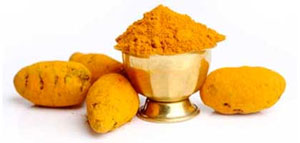Conventional and Natural Treatment Options for IBD

Conventional treatment for inflammatory bowel disease (IBD) involves: (vii.165)
- Systemic anti-inflammatory drugs (e.g., sulfasalazine and corticosteroids)
- Anti-inflammatory suppositories
- Immune system suppressors
Antibiotics are sometimes used, although there is no strong evidence of their effectiveness in Crohn's disease. Doctors sometimes recommend surgery as a last resort. (vii.165)
Blocking Inflammation is Key to Successful Treatment
Reducing inflammation directly and indirectly by suppressing the immune system response relieves IBD symptoms. It also puts the disease into long-term remission. However, anti-inflammatory drug treatments for IBD often have side effects, including: (vii.165)
|
|
NSAIDs (e.g., aspirin, ibuprofen, and naproxen) are often used to relieve pain. However, some these can also aggravate existing IBD by making symptoms worse. NSAIDs other than ibuprofen have also been linked to an increased risk of Alzheimer's disease. (vii.35, 165)
Naturally Treat IBD with Turmeric
Animal and clinical human studies show that turmeric and its compounds safely and effectively relieve abdominal pain and inflammation. In fact, animal studies suggest curcumin is about as effective as the pharmaceutical drug sulfasalazine in resolving colon damage. (vii.100, 161, 165-167)
Numerous studies report negligible side effects in humans when using turmeric or turmeric's curcumin extracts – including no gastrointestinal side effects. Research indicates that using turmeric extracts rather than systemic steroids actually limits suppression of the inflammatory immune system response to the intestines. This avoids the adverse side effects that can occur from suppressing the immune system in the entire body. (vii.29, 168)
How Does Turmeric Work to Treat IBD?
Turmeric and its compounds help reduce the inflammation found in IBD in several different ways:
Prevent abnormal angiogenesis: Extensive research shows that problems with the smallest intestinal blood vessels also help cause IBD. Turmeric compounds can block the overstimulation and abnormal growth of new blood vessels (a process called angiogenesis). This can help relieve chronic inflammation in the intestines. (vii.169)
Regulate immune system responses: In lab and animal studies, curcumin from turmeric exerts the following immune-regulating effects on ulcerative colitis:
- Blocks pro-inflammatory proteins thought to trigger the immune response by type 1 and type 2 helper T-cells involved in IBD. (vii.35, 170)
- Suppresses over-activation of immune system mast cells and limits the proliferation of lymphocytes. (vii.170-171)
- Prevents dendritic cells from further stimulating an overactive immune system. (vii.170)
Neutralizes free radical damage: Turmeric contains many antioxidant compounds (such as caffeic, cinnamic, and ferulic acids). In particular, curcumin shows dose-dependent antioxidant protection in the intestines. (vii.20, 47, 166)
Inhibits inflammatory NF-κB activity: This transcription factor triggers genes that produce many other inflammatory molecules – including COX-2 enzymes. Inhibiting COX-2 dramatically lowers the cancer risk associated with IBD. NF-κB is also involved in the immune system, and is considered a main cause of inflammation in the intestine. (vii.35, 160)

The rhizomes, roots, and leaves of turmeric contain many compounds block the activation of NF-κB. These include:
These and other turmeric compounds (such as ar-turmerone, myricetin, fisetin, quercetin, and resveratrol) are also direct COX-2 inhibitors. Whole turmeric oil reduces both NF-κB and COX-2 as well. (vii.20, 25-27, 159, 172-174)
Is There Evidence Turmeric Compounds Will Work in Patients with IBD?
Some questions remain about turmeric's ability to be absorbed and last in the body long enough to exert positive effects against IBD. However, animal and human studies suggest that it does. Turmeric's most bioactive component curcumin rapidly breaks down and metabolizes into various forms after being ingested, but these metabolites may also be beneficially active. (vii.166)
Clinical Studies Show Effectiveness
Research involving patients with IBD suggest that turmeric's curcumin compounds could help — especially in maintaining remission. Results from one pilot clinical study with five Crohn's disease patients and a 6-month placebo-controlled clinical trial in 89 patients with ulcerative colitis reported benefit from oral curcumin. In the clinical trial curcumin not only significantly improved clinically measured symptoms, patients who took the turmeric compound also had a much lower rate of relapse (5%) than the placebo group (21%). (vii.158, 170)
In 2012, a Cochrane review of clinical research using curcumin for ulcerative colitis was conducted. Only one clinical trial met the stringent review requirements. However, the researchers concluded that curcumin may be a safe and effective way to keep UC in remission. (vii.327)
Adding curcumin to conventional therapy may improve outcomes. In a double-blind study, patients were randomly assigned to take mesalamine (an anti-inflammatory drug used to treat IBD) with curcumin or the drug with placebo. Those who took curcumin experienced remission at higher rates than those given a placebo. (vii.328)
Dosage levels may be critical. Recently published results of a randomized, double blind clinical trial showed that low-dose curcumin (450 mg/day) was not enough to induce remission. The dosage level in the study on maintaining remission of ulcerative colitis was 2 grams/day of curcumin. In the study combining curcumin with an IBD drug to induce remission, patients were given 3 grams/day of curcumin. (vii.327-329)
Ways to Increase Effectiveness in the Colon
Scientists are also working on ways to increase the bioavailability of turmeric and its compounds. For example, when combined with a substance from pepper called piperine, curcumin lasts much longer. More of curcumin is absorbed in its original form into the body because piperine slows down its digestion in the liver and intestines. And studies in patients with colon polyps showed that when combined with quercetin (another turmeric compound) curcumin's beneficial effects are significantly enhanced. (vii.25, 166)
Recommended Turmeric Dosage for Crohn's Disease
Integrative medicine experts recommend 1-2 g/day of turmeric to help treat the symptoms of Crohn's disease. (vii.131)
Join the 1000s of People Who Are Discovering the Benefits of Turmeric.

Healthceuticals® Turmeric Curcumin Complex
100% Certified
Organic ingredients
- Organic Turmeric Extract - standardized to 95% curcuminoids.
- Organic Whole Turmeric - provides full spectrum antioxidant, anti-inflammatory turmeric benefits, including turmerones and numerous vitamins, minerals, and phytonutrients
- Organic Black Pepper Extract - standardized to 95% piperine; dramatically enhances bioavailablity.
- Organic Phospholipids - markedly improve absorption.
- Organic Ginger - works synergistically with turmeric to provide more powerful benefits.
- Absolutely FREE of potentially harmful additives and fillers such as magnesium stearate.




